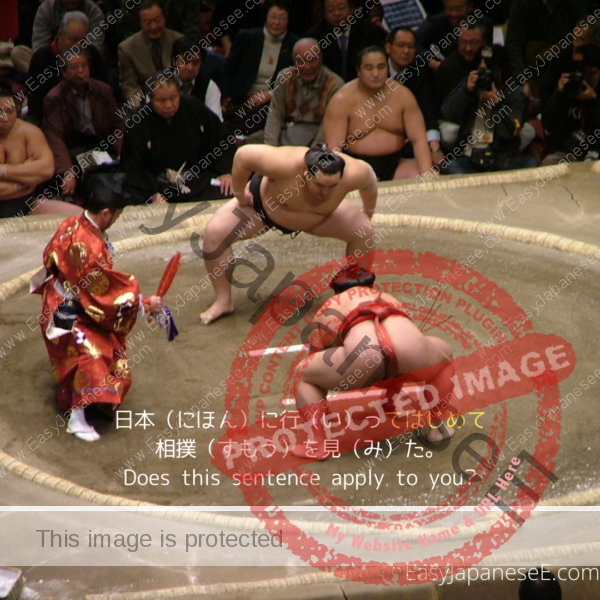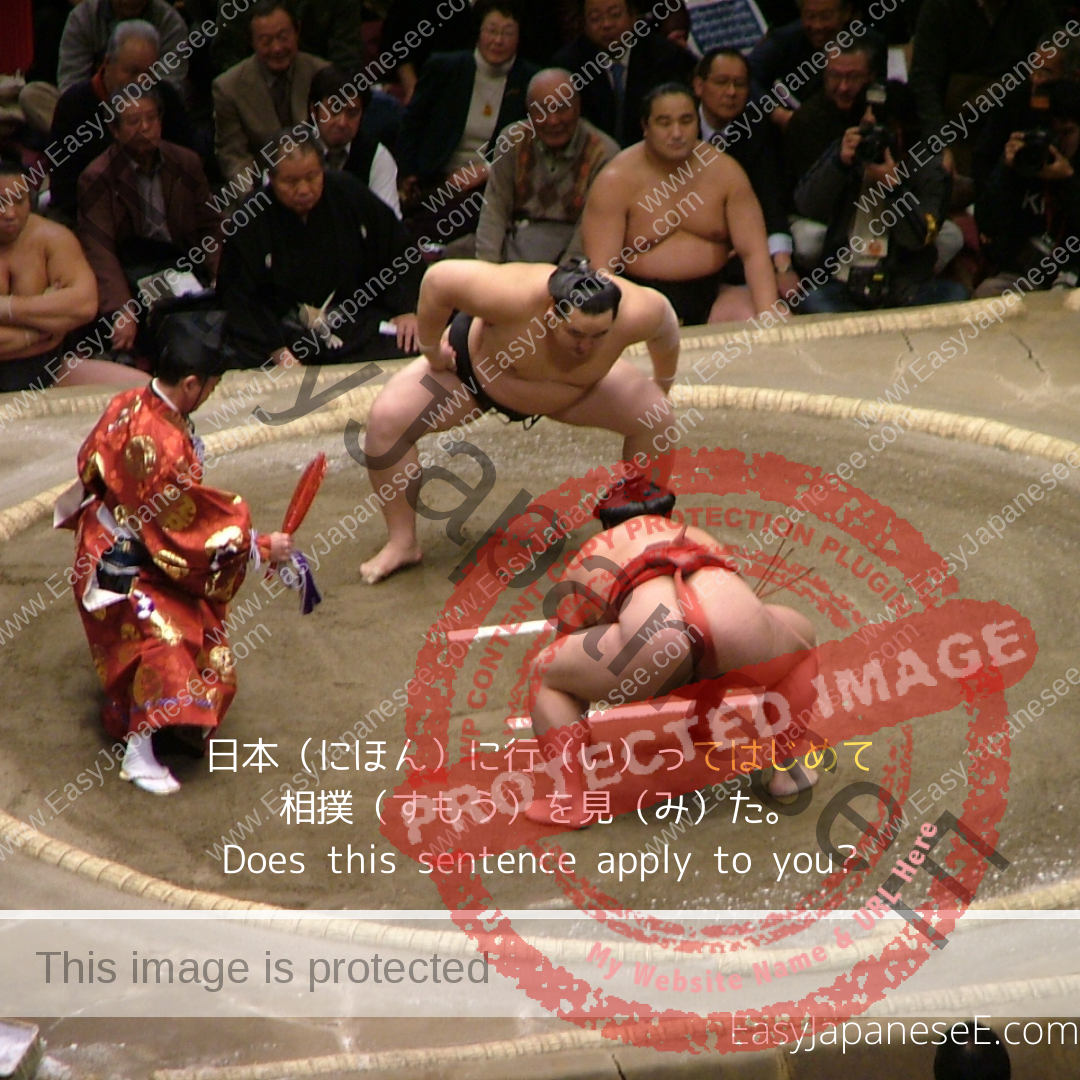
Today’s Grammar Point: ~てはじめて
はじめて means “for the first time.” It can be used after a てform and that means for the first time after ~. If the emphasis is on the latter half of the sentence, it can mean “… not until ~.”
Connections
- [てform verb] はじめて…
Examples
日本に行ってはじめて相撲を見た。
I saw sumo wrestling for the first time when I went to Japan.京都の旅館に泊まってはじめて、湯葉を食べた。
I ate Yuba (soy milk skin) for the first time when I stayed in an inn Kyoto.昨日生まれてはじめて、お酒を飲んだ。
Yesterday, I drank alcohol for the first time since I was born.中学生になってはじめて、腕時計を買ってもらった。
It wasn’t until I became a junior high school student that I was given a watch.日本語を勉強してはじめて、自分のしたいことがわかった。
It wasn’t until I studied Japanese that I knew what I wanted to do.この曲を聞いてはじめて、モーツアルトが好きになった。
It wasn’t until I heard this song that I fell in love with Mozart.試験に落ちてはじめて、もっと勉強しようと思った。
It wasn’t until I failed the exam that I decided to study more.赤ん坊が生まれてはじめて、親のありがたみがわかった。
It wasn’t until the baby was born that I truly appreciated my parents.停電になってはじめて、どんなに電気に頼っているかわかった。
It wasn’t until the power outage that I realized how much we are relying on electricity.病気になってはじめて、健康の大切さがわかる。
Only when you get sick can you understand the importance of good health.
If you liked this article, please share it with your friends using the social media buttons below. Also, your clicks on ads on this page help covering the cost of running this website. Your support will be much appreciated.

